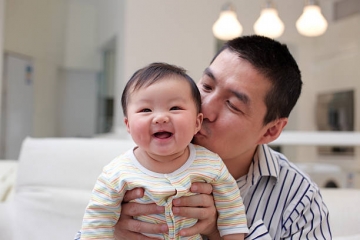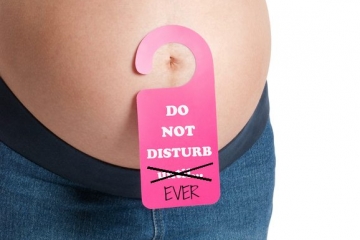Image credit: Fotolia
One problem that many parents in Singapore face after their confinement period ends – finding the best means of taking care of their baby while they’re back to work. In a perfect world, mum or dad would be able to stay home and create more memories and experiences with their little ones as they grow up, but in the hustle and bustle of Singapore, securing their careers is what’ll secure their child’s future.
So, in order to help you out, we’ll be doing some quick comparisons on the types of child care options that parents have access to in Singapore.
Preschools
Pros
- Socialisation – your child will be exposed to their peers, and they’ll learn how to make friends and play with others, building much needed social skills from a younger age.
- Education – apart from building social skills, they’ll also be building their minds and motor skills through the preschool’s learning programme. There are a whole lot of different preschools that offer a variety of teaching methods.
- Professional Care – teachers there are certified to be teaching and taking care of your little ones.
- Subsidies – you’ll be able to claim childcare subsidies from the government to help out financially. Most preschools lets you use your child’s CDA too.
Cons
- Location – if the location for your chosen childcare is far off, it’ll be difficult to drop your child off before work and then pick them up after work. What’s more, if travelling there is an inconvenience, both you and your child won’t be happy about waking up in the morning!
- Late Penalty Fees – somewhat related to the location, as well as your office hours. If you’re prone to doing overtime, be prepared to pay penalties for picking up your child late.
- Divided Attention – yes, the teachers are all qualified individuals, but they won’t be able to dedicate themselves solely to your child. Standard ratio is 1 teacher to 5 babies. However, this ratio varies with each childcare.
- Sickness – lots of kids in a small area plus a still undeveloped immune system equals a higher chance for kids to fall sick. You’ll have to take urgent leave to care for your child, and they’ll only be able to return to the preschool after they’ve recovered.
Continue reading on page 2 for the pros and cons of foreign domestic workers...
Foreign Domestic Workers
Pros
- Household Chores – taking care of the household chores is something that’ll free up a lot of time; time that can be spent bonding and playing with your child.
- Cooking – like the household chores, having your helper do the cooking is something that saves you time.
- Almost Always There – barring off and sick days for your helper, they’ll be around to help take care of your kid, even on the weekends.
Cons
- Trust – it’s definitely difficult to entrust your child to a stranger who might not know how to take care of an infant. Even though there are stories about amazing helpers who are more than happy to take care of the entire family, there are an equal amount of horror tales about how badly the helpers take care of children.
- Infant Care Training – on that note, if you wish to get your helper certified to take care of infants, you’ll have to pay for them to attend a short course.
- Lack of Focus – taking care of a child, doing household chores, buying groceries, and cooking are definitely a lot of things to handle, and the helper might not be able to do a thorough job on all of them.
- Language Barrier – communication isn’t that big an issue nowadays, but it still comes up once in a while, and if you have to give special instructions, it might take more time for you to ensure that they understand what not to give your child.
- Expense – a domestic helper around the house is a big help, but they’re expensive to hire and have other expenses other than their salary – medical fees when they’re sick, extra food and transport expenses, etc.
- Lesser interaction with peers -- unlike a preschool, your child won’t be interacting with their peers and could suffer from anxiety as they progress into kindergarten.
Continue reading on page 3 for the pros and cons of a nanny...
Nanny
Pros
- Experience – nannies usually have a lot of experience with taking care of kids, and they’ll know the ins-and-outs of babysitting and childcare. As another plus, some nannies have experience working as nurses or as preschool teachers and will be able to handle medical situations (should they arise) and a bit of education.
- Personalised Care – your child will have a strictly one-on-one care with a nanny, and that means a lot. They’ll be able to pay attention to the needs and wants of your child and could form closer bonds to them than preschools or helpers. With your child not being in a preschool, they’ll be less exposed to germs and viruses, which could mean they fall sick less often.
- Flexibility – they’re definitely less strict when discussing the hours where your child will be in their care as compared to preschools, and depending on what your needs are, they can do ad hoc babysitting too.
Most parents in Singapore often engage a nanny through recommendation from others. If you’re looking for a nanny through an agency, list out your expectations and requirements for a nanny that you’re looking for and they’ll be able to narrow down your search.
Cons
- Travel Time – like preschools, you’ll have to drop off and pick up your child on a daily basis. Getting a nanny that lives not too far away from you might not be the easiest thing to do as well.
- Different Values – your opinions on how a child should be brought up might clash with the nanny’s own opinions.
- Off Days – nannies are also only human, and they’ll want to go on holidays too, but they’ll usually update you in advance for any trips that they’re planning. However, if they fall sick, you’ll probably have to take urgent leave to take care of your child or go through a mad rush to find a replacement.
- Lower Social Skills – unlike a preschool, your child won’t be interacting with their peers and could suffer from that as they progress into primary school.
- Cost – Nanny fees are generally high (maybe even more than childcare and hiring a domestic helper).
Continue reading on page 4 for the pros and cons of your relatives...
Your Parents / In-Laws / Relatives
Pros
- Costs – it’s usually a lot cheaper when you’re having your own parents take care of your child!
- Family Bonding – grannies and grandpas usually have a lot of time on their hands, and would love to help take care of their own grandkids. Plus it’ll be good for your kids to interact with and get to know their grandparents more.
- Trust – they’re family, and they raised us, so we’ll have the ease of mind to place our own kids in their hands.
- More Time For You – for those who live with or close to their parents, they’ll have much more time to prepare for work and not be in a rush to drop off their kids. Our parents can also help to provide proper meals for our kids and might also help out with household chores.
Cons
- Lower Social Skills – similar to nannies and helpers, the lack of interaction with peers could be an issue as they grow older.
- Discipline Issues – grandparents usually dote on their grandkids as it’s all because of love, but this could lead to them growing up spoilt! They might not discipline our kids harshly, or even at all!
- Discontentment Between Mum & Dad – it happens quite often, as the mummy or daddy might have some issues with how their children are taken care of by their grandparents. Both speaking out and keeping quiet could lead to resentments. In the case of speaking out, the grandparents could feel hurt because of what was said, and in the case of keeping quiet, there might be arguments between husband and wife because of how the situation was handled. Have an open talk with your parents about how you wish to have your child be taken care of, and bring up any issues that they may have.
- Education – it’s not likely that grandparents will give our little ones education that’s in line with the primary school curriculum, unless they’re ex-educators themselves!
One of the more common combinations that we usually see is Preschool and Parents/In-laws or Helpers. For half-day preschools, we usually drop our kids off at the preschool in the mornings while our parents or helpers will be the ones who pick them up in the afternoons, and then they’ll take care of them until we’re done with work.
Doing this allows our children to interact with their peers and socialise, provides them with some early childhood education, and lets their grandparents bond with them too!
For parents who decided on hiring a foreign helper, most choose to plant cameras in shared areas to ease the trust issues till they are fully convinced to entrust their baby to them.
It is a difficult choice to make, but whichever decision you make, remember, it’s for the best of your baby!
Get the latest articles on all things pregnancy and baby! Subscribe to our mailing list and like us on Facebook!

 Father’s Day 2018: Daddy Diaper Bags Bonanza
Father’s Day 2018: Daddy Diaper Bags Bonanza  4 Mother’s Day Gift Ideas
4 Mother’s Day Gift Ideas  16 Important Habits To Help You Avoid Mum Burnout
16 Important Habits To Help You Avoid Mum Burnout  Dread Grocery Shopping? 4 Common Challenges Parents Face + a chance to WIN $100 Fairprice Online Shopping Credits!
Dread Grocery Shopping? 4 Common Challenges Parents Face + a chance to WIN $100 Fairprice Online Shopping Credits!  Things That Annoy Any Pregnant and New Parents: Be Warned!
Things That Annoy Any Pregnant and New Parents: Be Warned! 


